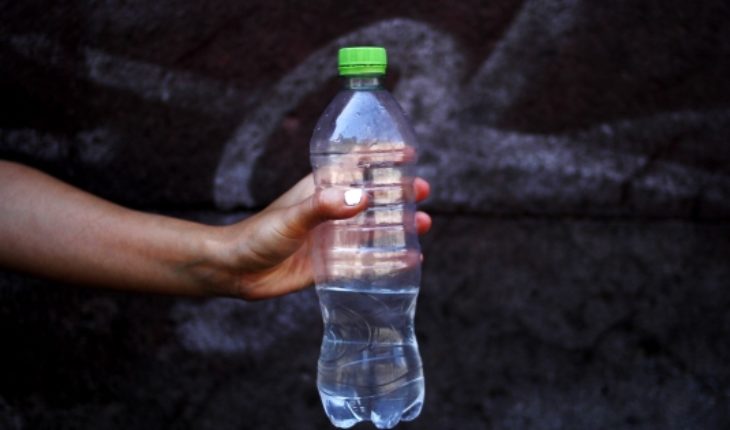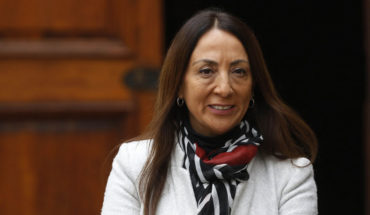We have no doubt that a “new pact” is necessary between citizenship and nature in the diversity of territories that constitute us and where we build ourselves in both peoples and peoples. In this column we are interested in referring to water and contributing to political and social reflection from another angle. An approach that allows us to broaden our gaze and deepen an enabling context – the constituent process – to generate other practices and other water policies. Well, as the French poet Paul Claudel said: “Everything the heart desires can always be reduced to the figure of water.”
We understand water as much more than water. The current debate on water as a human right and common good places it in another category, rather than just material. Water is life, it inhabits us. We’re full of it. Our planet is mostly water and when we find ourselves in the middle of the ocean, we are reminded of our smallness and insignificance. The water that can be as small as wild dew drops like uncontrollable and majestic waves on a glacier. In many cultures, he baptizes us, renews us, and purifies us. With water we form an ethical community. We don’t exaggerate. We bond with her from the order of ethics: just, good, beautiful, healthy, necessary, mutual. The water must be cared for, favored and celebrated. That human-water ethical community must be understood as a good. Not only water, as matter/substance is a necessary commodity; but the community does well, enlarges us and transforms us. We are who we are because there’s water. What about politics? In Chile, in some ways, this ethical relationship has been commodified, usurped by some and manipulated from questionable ethical standards. Rodrigo Mundaca, spokesman for Modatima, awarded in Nuremberg a few months ago for his defense of HRDs, and cowardly threatened upon his return to Chile, has tirelessly enlisted us with the cost and aberration of our country’s Water Code; denouncing the economic interests that underpin it.
Either week, we continueto witness a neoliberalized understanding of water, as the idea of legislating constitutional reform that enshrines water as a human right and good for public use is rejected in the Senate. The citizenship-water ethical community has owners. And those owners, they distribute, cut, deliver, manage, and decide what to do with the water. For who and how much. And as if it were the last straw, they impel us to rationalize it in short showers or short drinks.
It is worth stopping and reflecting beyond the economic, for the underlying problem is ethical and political. Is it possible to live in these conditions when access to water is mediated and intervened by private? Isn’t it time to rebuild the public bond and alliance with water? Isn’t a community of families, children, animals, an ecosystem worth more than a particular plantation of paltos? If the beats are dried, who is affected? Who’s dead? Serve us as a button to show the situation of the breeders of Putaendo, the reality of Petorca, or the long struggle for the defense of the Maipo River.
It may seem that we are confusing levels or mixing scales of analysis: the sea and water of our homes; a dire of chops and the rivers running south. Let us tell you that’s exactly what this is all about. The British philosopher and ecologist Timothy Morton, among others, urged us to think of multiscales, that is, to think about the river and the water that reaches the house, at the same time. Morton says that one of the problems of the ecological crisis has to do with isolation or particularism when it comes to understanding environmental phenomena. We must understand them rather as processes, relationships and movements. What should worry us is not only if we have water in our kitchen, but how it circulates and will continue to circulate; and how we establish links (large and small, personal and collective) with each phenomenon and environmental agent. Talking about water is not, then, just talking about drought or the coastal edge. It is that and the whole network of relationships that follows. We must understand the phenomena from the macro and the micro, from the far and the near, the broad and the specific, from the one’s own and the alien. Even more! From the human and the non-human. From the multiple relationships that are established and what flows from it, it is generated and rebuilt.
Definitely water is more than water. To think about our relationship with water is to work to overcome capitalist relationships with it. It is to reestablish a relationship of care and respect and cultivate an experience of another kind: alliance/pact. Especially with fresh water, given “its supremacy,” as Gastón Bachelard brilliantly states. The water and eco-social crisis urges us in this transformation; it warns us about time and to push us at once to the development of necessary and intelligent public policies. Hopefully, multi-scalar public policies – that are understood and thought of these networks and interactions and located, that is, that they really respond to the challenges of each context. Would it be too much to ask for the constituent process to set out on the task of generating other relationships with water? Not purely commercial (water as a resource), non-material (water as an object), non-personalistic (water as a private good), let alone alienating (“I don’t care about water”).
In this historic year for our democracy, water must be a central point, because it needs to be redemocratized. If we understand it as a common good and human right (UN, 2010) How can we establish this personal and citizen pact, public and spiritual with that without which life is not possible?
We name the rivers and lakes, generating a bond; as if in that “appropriation” of water we could understand it, imprison it. We call them, gendered. And it is not surprising that in Chile all rivers have male names; except for some exception. Not so in other languages, such as French: The Seine, the Saone. The language says a lot about how we relate to nature and non-human. The new ethical-political pact with water should urge us to include other questions and dimensions when developing public policies and a territorial ecosystem order. It would be irresponsible to miss the opportunity to rediscover water as a relational subject, as another that enables life and from there, for example, to understand the places in water dispute and where water forms relationships, an economy, policies, discourses, social practices and imaginaries (spiritual), as hydrosocial territories. This would allow these areas to be targeted and treated in a particular way by generating concrete public policies that meet and respond to the needs of the eco-social community, recognize the different actors present and that the irregularity of water practices of private, business and large owners can be fought, denounced and eliminated. The new pact of the society-water ethical community must be built as a citizen, from today, in view of that Chile that we hope.
The content poured into this opinion column is the sole responsibility of its author, and does not necessarily reflect the editorial line or position of El Mostrador.





